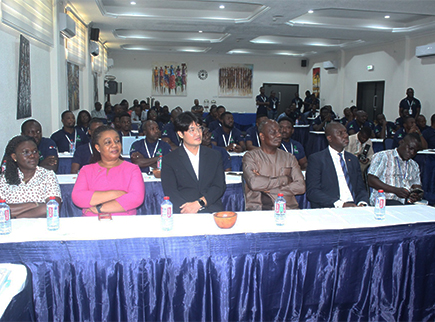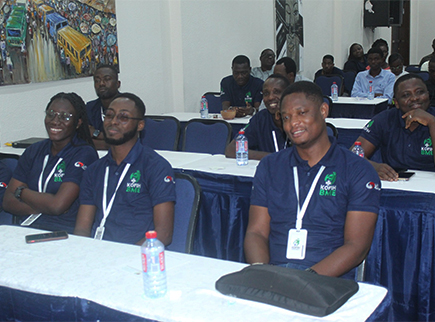Biomedical Engineers have been advised to put into practice the knowledge and skills they have acquired to improve health care delivery as they play a major role in ensuring patients’ safety.
Dr Nicholas Adjabu, the Head of the Biomedical Engineering Unit, Ministry of Health, at a training programme for the engineers on Monday, in Accra, expressed concern over the lack of biomedical engineers in the country’s hospitals.
He expressed the hope that the government would employ more biomedical engineers to support all the hospitals.
“It is our wish that the government will be in a position to recruit more engineers to support all the hospitals, so that wherever we have a hospital, there will be an engineer who will do the day-to-day work,” he said.
The training programme, the ninth edition, was organised by the Korea Foundation for International Health (KOFIH), in partnership with the Ministry of Health (MOH) and the Ghana Health Service.

It brought together 40 biomedical engineers from health facilities under the MOH to refresh and upgrade their technical skills.
Dr Adjabu urged the participants to be safety conscious, saying: “Safety starts with you; it is the beginning of your learning.”
“We have a lot of hospitals that are without engineers, and only a few hospitals have engineers, so the training will help the participants to improve upon their skills.”
He said the diagnostics equipment used in the hospitals were manned by biomedical engineers to ensure better operating efficiency, adding; “biomedical engineers use equipment, and it has to work well. So, for the equipment to work, it’s our engineers that have to make that happen.”
He urged the participants to develop an effective maintenance culture to ensure that medical equipment was safe.
Mr Bomin Yang, the Country Director, KOFIH, said the training objective was to enhance the technical skills of the engineers to improve Ghana’s healthcare system.
He pledged the foundation’s continuous support to strengthen the capacity of the workforce and ensure engineers met the evolving needs of healthcare delivery.
Ms Agnes Clayman, a Biomedical Engineer at the University of Ghana Medical Centre, said the training had helped her gain firsthand experience with some of the equipment.
“I have learnt about emerging technologies in health care to improve my knowledge. I have also learnt about incorporating artificial intelligence to improve on my skills,” she said.
The participants were presented with certificates and tool kits at the end of the training programme.


https://shorturl.fm/9H3bZ